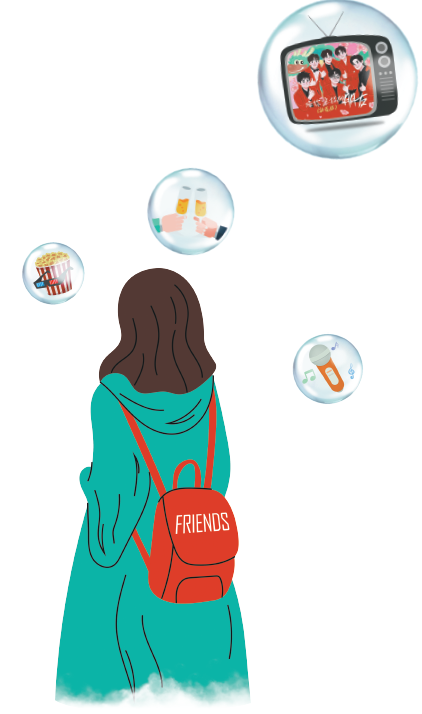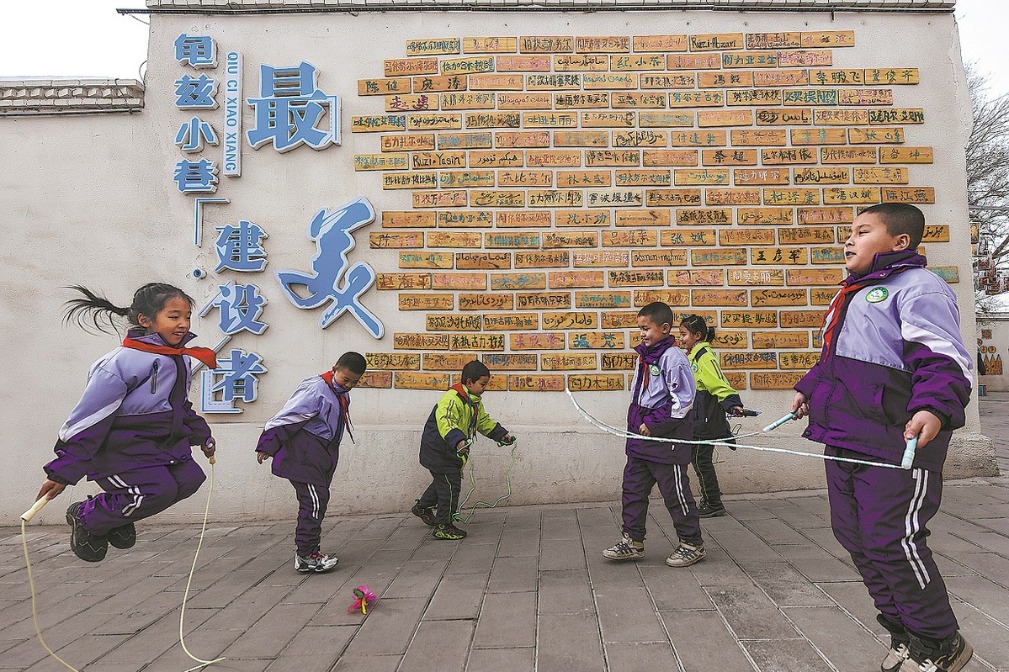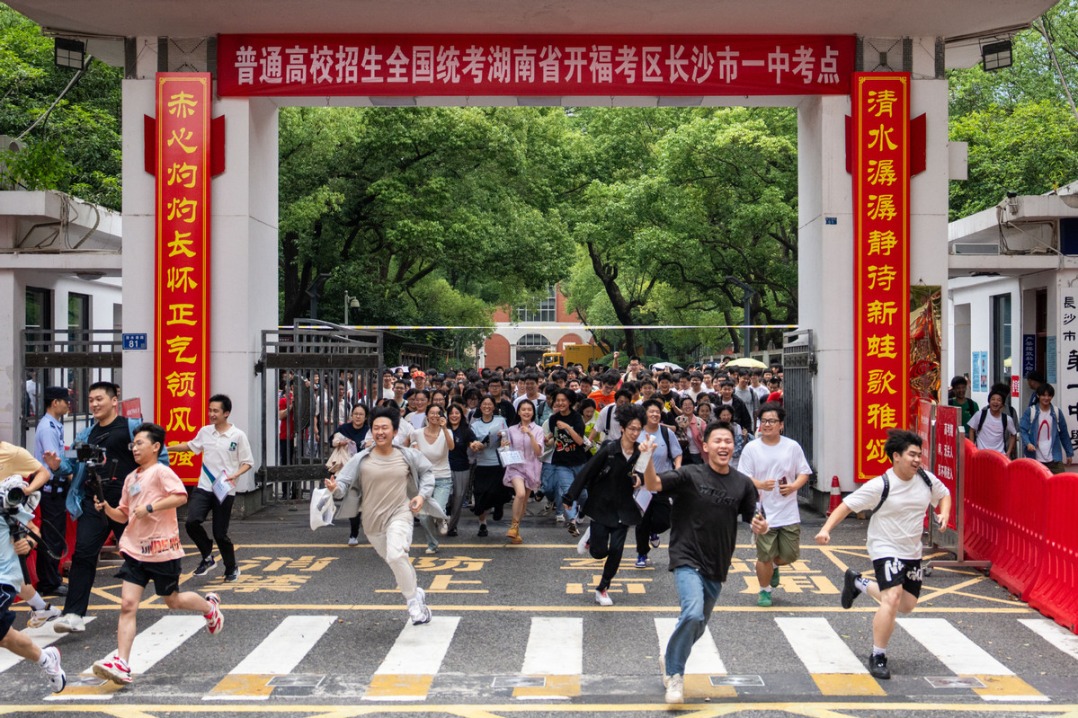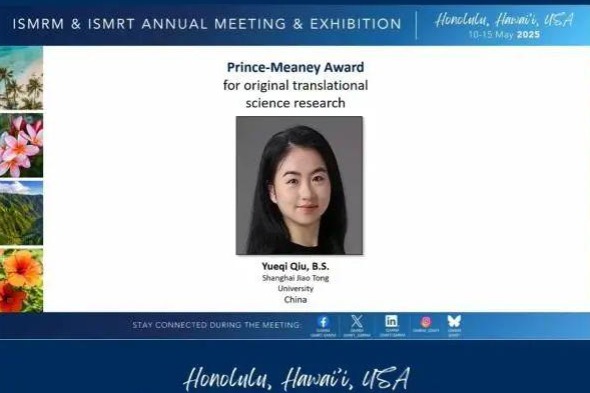Friendship redefined in era of 'zero-sugar' socializing
With limited time and less motivation, young people look to new types of relationships


The concept of friendship has become more fluid in modern China, with shared life stages and brief but more meaningful interactions replacing old notions of unchanging best friends and rigid social circles.
These changes are reflected in the growing dazi phenomenon where partners, who are not necessarily friends, are sought for activities such as dining and travel.
Other social trends such as "greeting disorders" and "telephone phobia" have grabbed attention in recent years, with young people claiming they don't have the time or inclination to form deep friendships due to the pressures of modern life, Sichuan Daily reported.
"In today's fast-paced society, friendship is more fluid," said Xie Weihan, a researcher from the School of Social and Public Administration at East China University of Science and Technology.
"Dazi connections prioritize situational interaction over deep emotional investment, offering companionship without the burden while protecting personal spaces".
The Insights into 2024 Social Media Trends report by Soul App revealed that young people today have an average of just two close friends.
Nearly one-quarter said they lacked someone they could truly confide in, making them more isolated.
The average time young people spend with friends is 8.25 hours a week, the report said, but in major cities such as Beijing, Shanghai, and Guangzhou and Shenzhen in Guangdong province it is only 7.94 hours. When asked about their ideal friendship, 54 percent said they preferred to "stay in frequent contact but still maintain their personal space".
The younger generation is also choosing "zero-sugar" socializing by staying in regular contact with friends while preserving their personal space, according to a Beijing Daily story published in November. The phrase, which borrows from beverage marketing, conveys the idea that people feel "lighter and stress-free", the report said.
According to the 2024 National Time Use Survey Bulletin (Third Edition), after deducting time spent on entertainment and fitness activities, individuals in China only have about 3.5 hours of free time per day. Actual time spent on social activities averages less than 20 minutes, the survey said.
Filling the void
Aware of the changes, groups such as Li Siqi's, a psychological counselor in her 30s, are trying to provide updated and comfortable ways for people to meet and make friends.
In 2023, she co-founded a small social club in Kunming, Yunnan province. Born from a need to ease post-pandemic loneliness, the club now hosts up to four social events every week.
"After years of working in corporate mental health planning, especially for banks and companies, I saw how the pandemic changed everything. Budgets were cut, and stress skyrocketed. Everyone was just going from home to work and back again, stuck in a repetitive loop. Even those who weren't single felt an aching social void," said Li.
The themed gatherings include "Meet a Stranger" and "Wine and Talk" evenings as well as meditation sessions and holiday-inspired dinners.
The social events aim to try and rekindle face-to-face connections.
"People often say they're 'I' types — introverted or reserved — but I've seen so many of those same people stay until the very end of an event, opening up, laughing, sharing," said Li. "Everyone wants to make a connection and they just need the right setting."
Carefully designed for emotional safety and spontaneity, her events typically host 20 people, with card games, conversation prompts and specific pairings to break the ice. Some events revolve around shared interests like mindfulness, while others offer a space to talk about stress, loneliness, or personal growth.
Li sees these functional relationships, like dazi, not being a lesser form of friendship, but a reflection of modern realities. "People today are more self-aware. They want relationships that make sense for them. That's not a loss — it's clarity," she said.
Her events have sparked surprising transformations in the participants.
A PhD graduate who returned from studying overseas once sat silently during the events, but he now confidently leads group conversations. Others have formed support circles and work partnerships — and one couple who met in the group even got married.
As the social fabric of urban life continues to shift, Li and her team believe they are offering new ways for friendships to develop.
"There's something healing about being seen and heard without an agenda. The goal isn't to collect people — it's to collect moments. If someone leaves feeling more seen, more at ease, then we've done our job," said Li.
- Friendship redefined in era of 'zero-sugar' socializing
- Xi, Sassou Nguesso greet FOCAC ministerial meeting
- Cultural creations made by Chinese women with disabilities showcased at UN headquarters
- China-Europe conference advances vocational education, AI talent
- China completes 75% of summer wheat harvest
- China and South Africa strengthen defense ties at 10th meeting





































